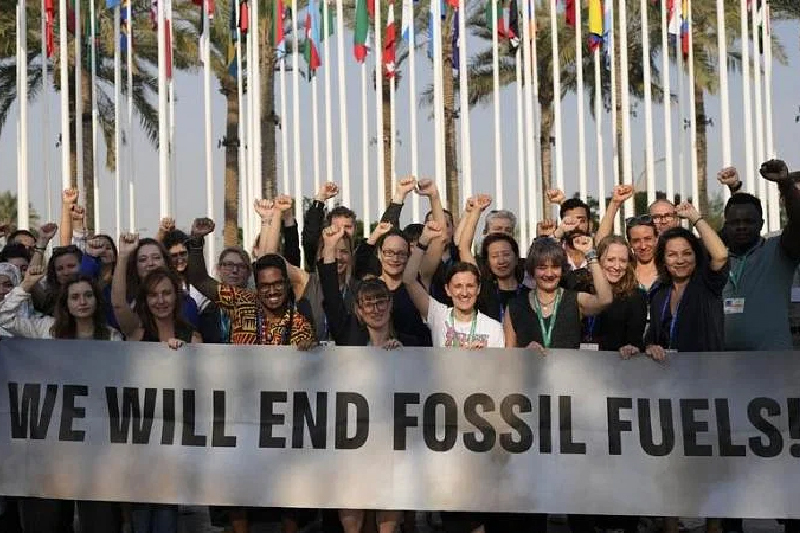
COP28: Celebrating Successes in Advancing Climate Action
The COP28 climate conference marked a significant turning point in the global commitment to addressing climate change, with key resolutions aimed at ushering in a sustainable future. Amidst the challenges, the conference achieved several milestones that underscore progress and determination in the fight against climate change.
Acknowledging the Urgency: For the first time in COP history, there was a collective acknowledgment of the imperative to transition away from fossil fuels. While the term “fossil fuel phase-out” did not find its way into the final agreement, countries pledged to contribute towards transitioning away from these fuels, with a commitment to achieving net-zero emissions by 2050. This critical step lays the groundwork for a cleaner and more sustainable energy future.
Tripling Renewable Energy:
A commendable outcome of COP28 was the agreement to triple the global installed capacity of renewable energy and double annual improvements in energy efficiency. This ambitious target has the potential to prevent the emission of about 7 billion tonnes of carbon dioxide equivalent by 2030, marking a significant stride towards a cleaner energy landscape.
Coal Phase-Down:
Despite the challenges, COP28 maintained a focus on the phase-down of coal, following up on the commitment made in the previous Glasgow conference. While specifics regarding measurement and baselines were not outlined, the agreement reiterated the importance of reducing coal dependency, signaling a commitment to cleaner energy sources.
Keep Reading
Methane Emission Reductions:
Recognizing the significant impact of methane emissions on global warming, COP28 addressed the need to accelerate and substantially reduce non-carbon-dioxide emissions, particularly methane, by 2030. While specific targets for 2030 were not mentioned in the agreement, the commitment to addressing this potent greenhouse gas represents a crucial step forward.
Loss and Damage Fund Operationalization:
One of the standout successes of COP28 was the operationalization of the Loss and Damage Fund. This fund, initiated in the previous year, received concrete commitments amounting to around US$800 million during COP28. Intended to provide financial assistance to countries affected by climate-induced disasters, the fund signifies a tangible commitment to supporting vulnerable nations.
Global Goal on Adaptation:
COP28 adopted a global framework for adaptation, addressing the historical neglect of adaptation activities in comparison to mitigation efforts. The framework identified common adaptation goals, including tackling climate-induced water scarcity, enhancing climate resilience in food production, and fortifying communities against health impacts. While financial provisions are yet to be fully realized, the framework represents a critical step toward prioritizing adaptation on a global scale.
In summary, COP28 may have fallen short of some expectations, but it undeniably achieved key successes that signal a growing commitment to confronting the climate crisis. The resolutions on fossil fuels, renewable energy, methane emissions, and the operationalization of the Loss and Damage Fund demonstrate the collective determination of nations to forge a sustainable path forward. As the world grapples with the urgent need for climate action, COP28 stands as a testament to the progress made and the ongoing commitment to building a resilient and sustainable future for all.




